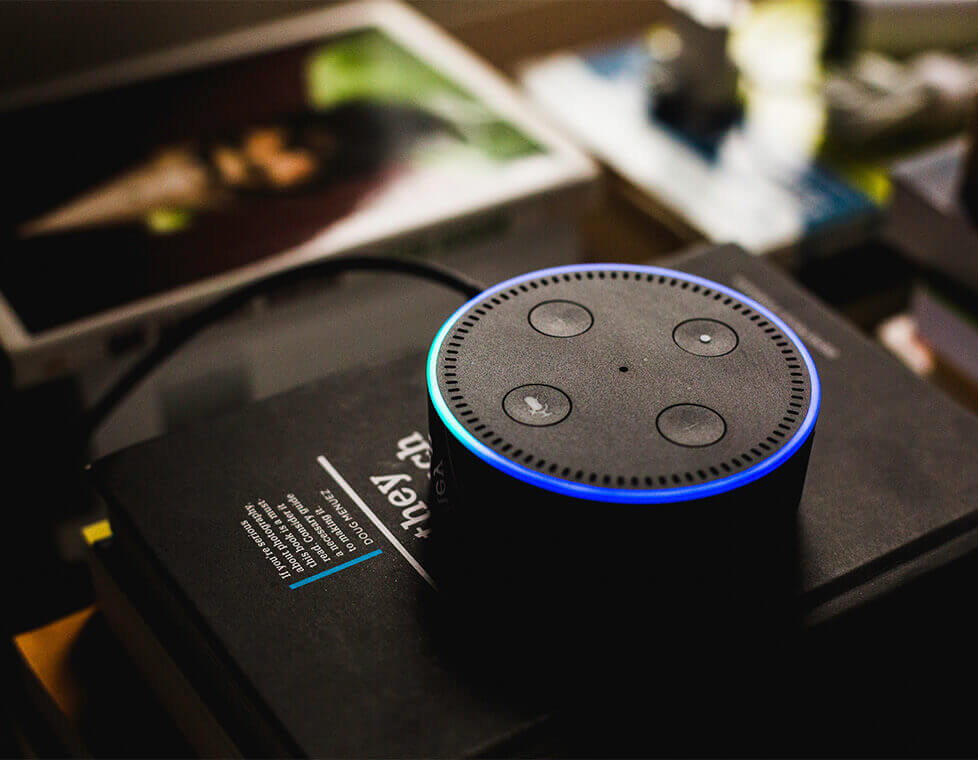One of the most interesting parts of working in digital, is that the landscape is always changing. In new technologies, where companies are fighting out for market share, the shift in product developments, features and integrations is lighting quick.
Voice search is no different. In the self-entitled ‘Voice Search Babble’, each fortnight we will be pulling together some of the key highlights and insights we’ve seen in the rapidly evolving voice market space.
Yandex introduces Alice, an Alexa-like assistant that speaks Russian
It’s not just Google, Amazon and Microsoft getting in on the voice search action. Yandex the main search engine in Russia have launched Alice, a Russian voice assistant.
Google’s assistant can already operate in English, French, German, Hindi, Indonesian, Japanese, Portuguese and Spanish.
More detail here: https://techcrunch.com/2017/10/10/yandex-introduces-alice-a-alexa-like-assistant-that-speaks-russian/
Amazon is winning the smart home speaker wars by a huge margin –
Research from Strategy Analytics has found that 68% of smart speakers by the end of 2017’s fourth quarter will be powered by Amazon Alexa. This would include the Echo device and any other devices with Alexa build in.
One of the reasons cited for the larger share in the market was the lower price of the Echo Dot at $39 compared to Google Home at $129. However, Google will shortly be releasing the Mini which will give them an avenue into the lower price point of the market.
It will be interesting to see how market share changes over time each with product launch. Product share could have an impact on SEO focus. For example, if voice search is dominated by Amazon, their answers are provided by Bing. Currently many SEO strategies don’t concentrate on Bing due to their lower share of traditional web and mobile search.
More detail here: https://www.cnbc.com/2017/10/12/amazon-echo-market-share-tops-google-home.html
Amazon Alexa devices can finally tell voices apart
Amazon have pulled level with Google on one feature. The Alexa now can detect different voices. So, responses will be customised according to who is asking the Question. For example, at home if I ask “Hey Google, play my chillout playlist” Google will pick my chillout playlist from Spotify. If my wife asked the same question, it would pay her chillout playlist.
More detail here: https://techcrunch.com/2017/10/11/amazon-alexa-devices-can-finally-distinguish-between-different-voices/
A messed-up Google Home Mini recorded a tech reporter 24/7
One of the things that should be considered if you are thinking about having a Google Home or Echo in your house, is that you effectually will have a recording device connected to the internet switched on 24/7 within your home/office. It is supposed that the data, including a recording of your voice, would only be taken after you used the hotword, e.g. “hey Google”. But it turns out a bug in the new Google Mini was sending information back to Google all the time.
Google commented, “We have learned of an issue impacting a small number of Google Home Minis that could cause the touch mechanism to behave incorrectly. We are rolling out a software update today that should address the issue.”
Could more incidents similar to this could have a knock-on effect on uptake on voice devices?
We can’t know for sure yet, however, as we have seen it in the past, providing the device delivers a value, people are willing to sacrifice some privacy – For example, “yes I’m being tracking all the time on my phone…. But I’ve got Instagram and bitmoji.”
More detail here: https://techcrunch.com/2017/10/10/google-home-mini-recorded-24-7-androidpolice/
